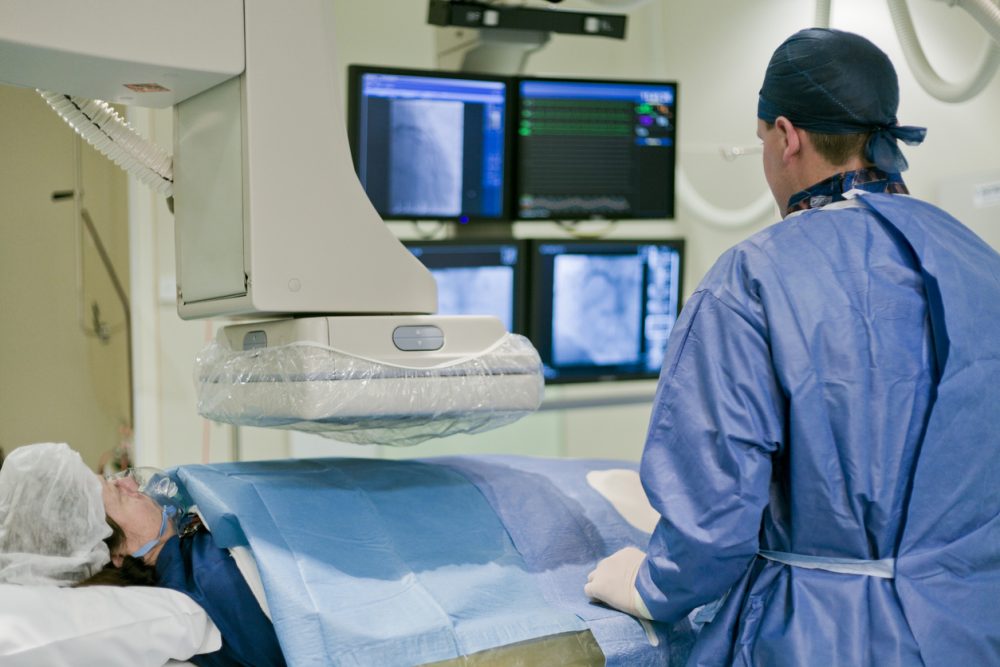Treatments
Atrial Fibrillation Ablation
The most common irregular heart rhythm in the U.S., atrial fibrillation is an abnormal heart rhythm originating in the atria. Rather than the natural electric impulse traveling through the heart in an orderly fashion, multiple impulses spread randomly through the heart and compete for the opportunity the travel through the AV node. The result—a rapid and disorganized heartbeat.
An effective method for treating this type of arrhythmia is atrial fibrillation ablation. In a minimally invasive procedure, the physician guides a catheter with an electrode at its tip to the area of the heart muscle where the damaged site is located. Then mild, painless radiofrequency energy is transmitted to the site of the pathway. As a result, heart muscle cells in a very small area die and stop conducting the extra impulses that cause rapid heartbeats.
This non-surgical procedure may also be used in the treatment of other rapid heartbeat disorders, such as atrial flutter, atrial tachycardia, and supraventricular tachycardia (SVT).

